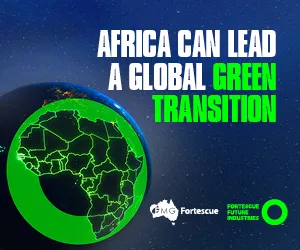Shares in NASDAQ-listed fintech Tingo have plummeted after a report from short-selling company Hindenburg Research asserted that the company’s financial statements are fabricated.
On 5 June, Tingo’s shares were worth $0.33. Twenty-four hours later, they plummeted to $0.064 after the report, in which Hindenburg labelled the group an “obvious scam” and questioned claims about the company made by Nigerian CEO Dozy Mmobuosi.
“We are short Tingo Group Inc (NASDAQ:TIO) because we believe the company is an exceptionally obvious scam with completely fabricated financials,” Hindenburg says.
Tingo, headquartered in New Jersey, USA, says it is “a global fintech and agri-fintech group of companies with operations in Africa, Southeast Asia and the Middle East” and says that its wholly owned subsidiary, Tingo Mobile, is “the leading agri-fintech company operating in Africa”.
In a statement, Tingo said that it “categorically refutes all the allegations and misinformation outlined in a report published by Hindenburg Research” and alleged that the allegations are an attempt by Hindenburg to realise gains from its short position.
Hindenburg Research engages in short-selling – a financial strategy in which an investor borrows a security and sells it on the open market, planning to buy it back later for less money. The firm has published reports on other multinational entities, including the Indian conglomerate Adani Group, Jack Dorsey’s Block, and Carl Icahn’s flagship, Icahn Enterprises.
Hindenburg’s allegations
Hindenburg’s report contains a substantial list of allegations against Tingo and its CEO, Dozy Mmobuosi. It alleges that Tingo’s food division reported revenue of $577.2m in the last quarter even though it says the firm has no food processing facility of its own.
“Tingo’s food division is 7 months old, yet claimed to generate $577.2 million in revenue last quarter alone, representing 68% of total reported revenue. If accurate, its claimed 24.8% operating margins would exceed those of every major comparable food company. Yet, Tingo has no food processing facility of its own. Rather, it claims its explosive revenue and profitability is derived from acting as a middleman between Nigerian farmers and an unnamed third-party food processor.”
The Hindenburg report casts doubt on Tingo Group’s future prospects, emphasising the lack of progress on a planned $1.6bn Nigerian food processing facility, which was touted in a groundbreaking ceremony attended by high-ranking political officials. But Hindenburg says that subsequent investigations found no signs of progress at the site, other than a plaque and billboard from the ceremony surrounded by weeds.
The company further alleged that important information was missing from Tingo’s Q1 2023 accounts.
“Tingo Group bought Tingo Foods from Dozy in February 2023 for $204 million, a price’approximately equal to the cost value of the inventory held by Tingo Foods’. The inventory, which was reported in year-end financials, completely vanished from Tingo’s Q1 2023 accounts without explanation. In our experience, $204 million in inventory doesn’t just disappear at companies with internal controls and genuine financial reporting.”
Tingo Group’s alleged collaborations with a major local bank, the rollout of services in Ghana, and the establishment of an agricultural export business called Tingo DMCC all face scrutiny in the report.


Dozy’s role
One of the key figures in the report is CEO Dozy Mmobuosi.
According to the report, Mmobuosi allegedly fabricated his claim of developing Nigeria’s first mobile payment app, a statement refuted by the app creator.
“We’ve identified major red flags with Dozy’s background. For starters, he appears to have fabricated his biographical claim to have developed the first mobile payment app in Nigeria. We contacted the app’s actual creator, who called Dozy’s claims ‘a pure lie’.”
His assertion of obtaining a PhD in rural advancement from a Malaysian university in 2007 was also questioned by Hindenburg.
“Dozy claimed to have received a PhD in rural advancement from a Malaysian university in 2007. We contacted the school to verify the degree. They wrote back saying no one by his name was found in their verification system.”
Hindenburg Research also highlights Mmobuosi’s past legal troubles, including an arrest and an eight-count indictment related to bad check issuance in 2017 and says the case was later settled through arbitration. In addition, the report highlights media reports about the launch of Tingo Airlines.
“In 2019, Dozy claimed to have launched ‘Tingo Airlines’ and posted social media messages encouraging customers to ‘fly with Tingo Airlines today’. Media outlets later uncovered that Tingo had photoshopped its logo onto pictures of airplanes. Dozy later admitted to never owning any actual aircraft.”
Tingo denies allegations
In a statement, Tingo called Hinderburg’s report “malicious and misleading” and alleges that the firm is trying to profit from the allegations.
“The report, which contains numerous errors of fact, together with misleading and libellous content, appears to be a deliberate attempt to undermine the positive work that Tingo Group is undertaking across various worldwide markets. As disclosed by Hindenburg Research, the report represents their own opinion, and is designed to benefit a short position taken by them and their associates from which they stand to realize sizeable gains.”
Tingo Group further asserts that it “remains in compliance with the laws of the territories in which it operates and maintains the highest standards of corporate governance” and that “its accounting records are accurate and correct and that its financial results are accurately reported within its financial statements and its SEC filings.” It promises to respond in detail to the allegations in due course.


